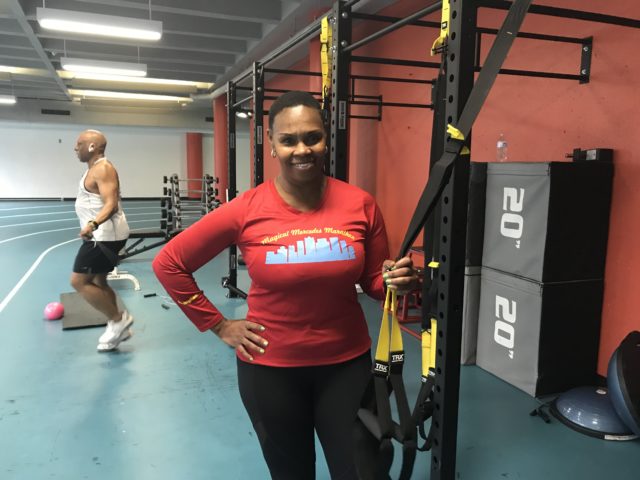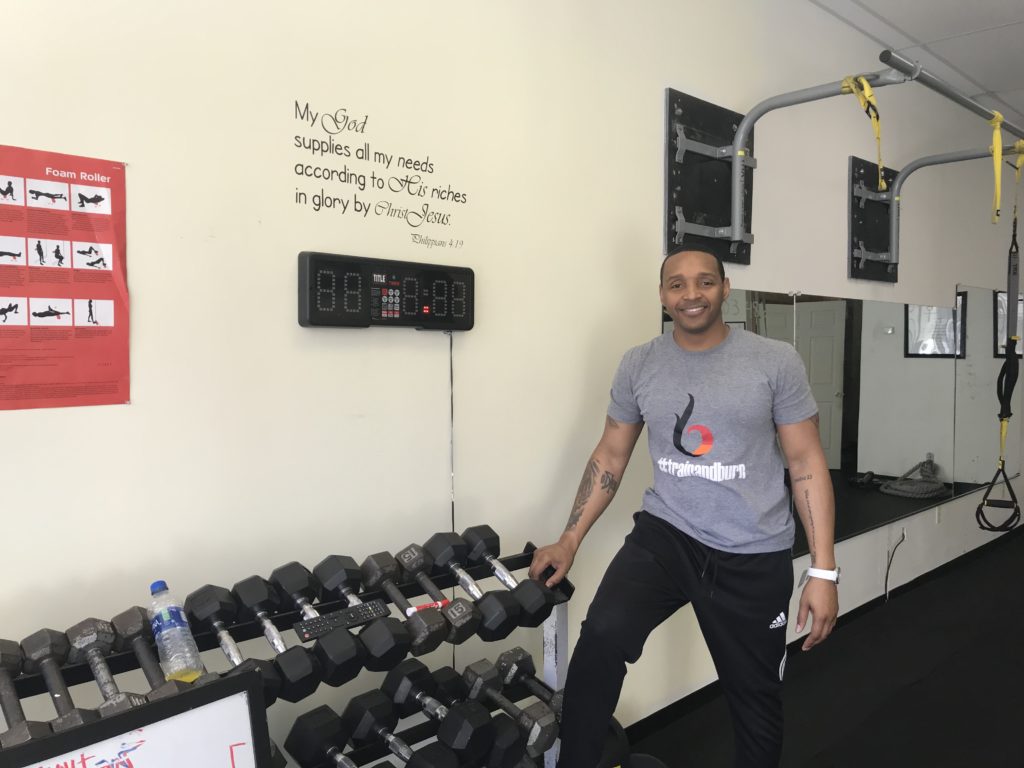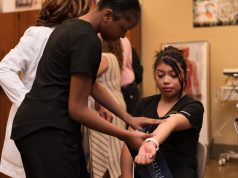
By Erica Wright
The Birmingham Times
At the start of the new year, many people have made resolutions to focus on improving their physical health and fitness. Jerri Haslem, founder of Black People Run, Bike, and Swim, an organization that teaches the importance of health in the black community, encourages people to just be active.
“When it comes to cycling, [for instance], that can be an expensive sport,” she said. “So, we meet in a group forum, talk about it, and educate and encourage people to be active. It doesn’t have to be running, biking, or swimming. Just get active.”
Haslem, who holds a degree in health education from the University of Alabama at Birmingham (UAB) and is certified to be a personal trainer, said African-Americans must be taught the importance of health.
“We’re not taught about that,” she said. “It’s something that’s almost like a punishment. [Take running, for example]. … It’s like, ‘Oh, you’re late, so you’re going to run.’ It’s not something that is part of our normal culture. When I think about swimming, this is just not something [done often by] African-Americans; … [our drowning rate is] 67 percent higher than [that of] any other ethnicity.”
Start Simple

When it comes to working out, consistency is key, said Curtis Starks, a certified trainer and owner of Train and Burn gym in downtown Birmingham.
“Be ready to invest in yourself. [People] often invest in external things, like clothes, purses, shoes, and things of that nature, but I think you should be ready to invest in yourself internally. It gives you a sense of ‘Yeah, it’s time to make a change,’” said Starks, who attended Samford University.
Haslem recommends three simple steps:
“Park at a distance from wherever you are going, and walk” to your destination, she said.
“Write down where you are [fitness-wise] because the only way to make changes is to see where you are so … you can determine where you want to go.”
“Get some rest and sleep because … if you don’t get enough rest, you will never lose weight.”
“Those are three things you can do that don’t cost anything and can help you get started,” she said.
Haslem added that walking is one of the most simple, underrated exercises a person can start doing to get healthier. The only time you’re praised for walking is when you are a baby and you take your first steps, she said: “After those first steps, it’s a wrap.”
“It is a fact that walking 30 minutes a day can change your life. It is not respected because people say, ‘Oh, I gotta go fast. I have to run.’ If you walk for 30 minutes a day, it can change your life. You can walk at the park, around the block, at the mall, or at the building where you work. You don’t need a track to do it.”
She added, “Don’t walk and talk to your friends on the phone. Put the phone down and make it a brisk walk. It’s not strolling or window shopping. You have to walk with a purpose. Take a brisk walk.”
Watch What You Eat
Starks suggests simple dietary changes: cut out sodas and other sugary beverages and drink more water; eat fewer fried foods and less bread and choose more fruits and vegetables.
“I know it’s hard sometimes to just quit cold turkey, but one of my favorite quotes is, ‘You don’t have to be great to start. You have to start to be great.’ You have to start somewhere,” said Starks, who added that it’s important to have a balanced diet and stay away from eating plans that advise you to cut out too much of anything or eat too much of one thing.
“You want your meals to be balanced,” he said. “You want your proteins, your carbohydrates, and your fats. You want those to be balanced because you don’t want to have an all-carb or all-protein diet. Eating is really simple: no fried foods, soda, stuff high in sugar, things like that. Keep it simple.”
Starks said African-Americans, especially, need to be aware of what they eat.
“Change your diet, move three or four times a week … to [help] prevent [illnesses like] … high blood pressure, diabetes, and things of that nature,” he said. “Culturally, … the mindset has to be, ‘I’m ready to invest in myself.’ The long-term goal to live longer is not just to lose weight [but] to adopt that mindset you will be able to put preventive measures into play.”
Get with a Group
Starks also encourages people to surround themselves with others who are doing the same things and have the same objectives.
“Make sure you get a certified coach or trainer,” he said. “That’s big now because a lot of [trainers] are just taking tests, passing, and saying, ‘Cool, I’m going to go train,’ but it [involves] a lot [more] than that. [A trainer has to] be in tune with people’s bodies.”
Groups can be small, such as walking groups or group sessions with a trainer. When working in groups, set monthly goals to accomplish; for instance, start out walking one month and move to jogging the next month.
Working with a group can help keep you accountable, Haslem said.
“Share your resolutions or weight-loss goals with your support team. Don’t share them with people who will not hold you accountable because statistics say most people will break their resolutions by January 12,” she said. “It’s like a vision. You can’t share your vision with everyone.
“If you say, ‘I’m going to start eating healthier’ and a coworker [who doesn’t support your goals] sees you eating a dessert or something, they might take a jab at you. … If you share [your vision] with people who are trying to help you reach your goals, they can hold you accountable.”
Working with a group can even help with healthy eating objectives. Haslem recommends teaming up with people who will eat clean with you and encourage you to make better food choices, such as eating more fruits and vegetables and fewer fried foods.
Make a Plan
Start out with a plan and set short- and long-term goals.
“If you start with long-term [goals] and don’t get there in three months, then you’re going to be frustrated and discouraged, and you’re going to want to quit,” Starks said. “Treat it like a tree and just chop it down little by little. Eventually, it’s going to come down. Don’t get discouraged when you don’t see the results you want to see in the matter of time that you want to see them.”
Haslem added that goals must be realistic and suggested starting with one at a time.
“If you want to be healthier, don’t make a list of 20 things to do all at once,” she said. “It’s OK to make a list. Statistics prove that when we make lists, we are more likely to stick to them. If you say, ‘I want to lose 100 pounds,’ that’s great, but I would not advise you to have that as one item. It needs to be broken up. If you want to lose 100 pounds, set a goal and start with something small like … losing 10 pounds. If you drink five sodas a day, make an agreement to cut that down and drink maybe two a day if you don’t want to give up sodas completely. … Little things like that really help because those behaviors are what you end up doing.”
Don’t Wait
Don’t wait too late to make exercise a part of your life. Some people get to the point where the doctor tells them to start working out to lose weight because they have diabetes or high blood pressure.
“My thing is, ‘Why did you wait until you got in this position to start to try to change?’” Starks said. “I always say don’t seek help when the problem is there, seek help so you will never get to the problem.”
For more on Black People Run, Bike, and Swim, visit http://www.blackpeoplerunbikeandswim.com/ or email jerrihaslem@gmail.com
For more on Train and Burn, visit https://trainandburn.com/ or email trainandburn@yahoo.com
Click here to read more stories about health and fitness: Xtreme; Kevin Brown; Stay healthy in the new year.




